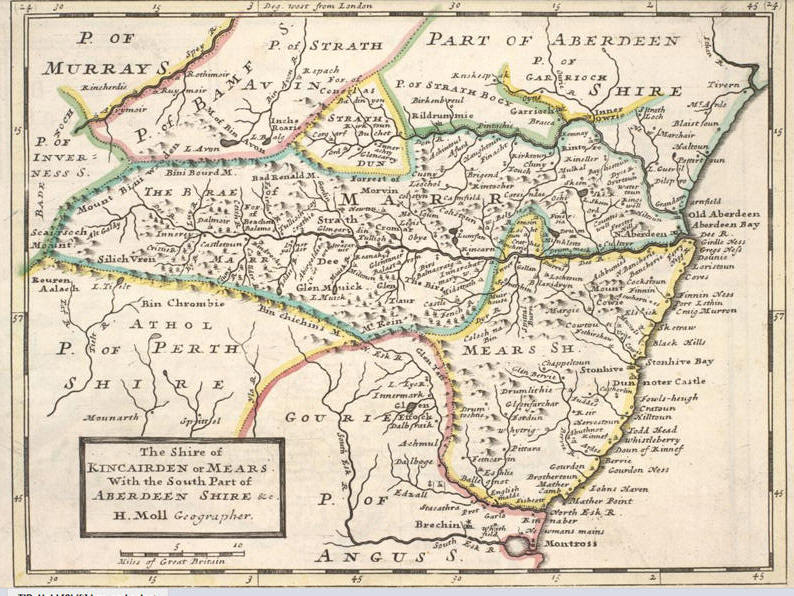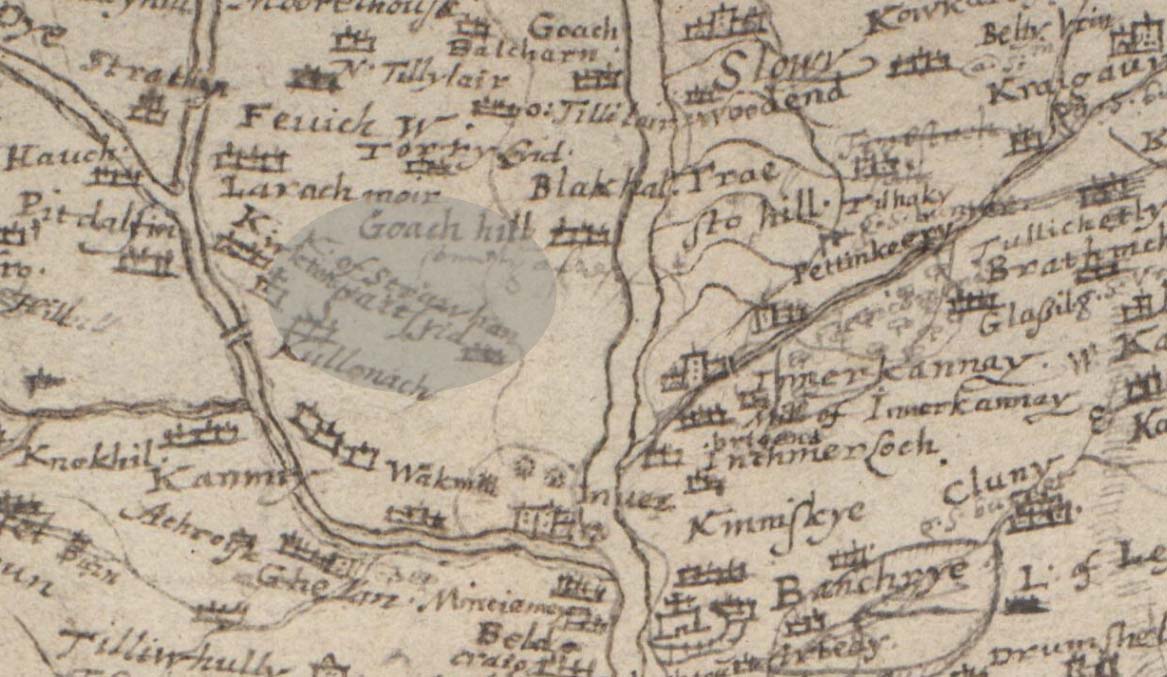Pronunciation of Strachan and Etymology
By Jim Strachan, MBA, FSA Scot
Published 22 Dec 2013
Contributions from: Dr. Philip Smith, PhD Linguistics, and
learned Gaelic speaker.
Clicking on the map images will open a new window showing a higher resolution image.
 The
"accurate" pronunciation of the surname of STRACHAN is highly controversial,
both within and outwith the family. The
"accurate" pronunciation of the surname of STRACHAN is highly controversial,
both within and outwith the family.
Many Scots (albeit not all) contend
that /stra-khan/ is the proper pronunciation (using a gutteral for the 'ch');
while many of the Diaspora (albeit not all) pronounce the surname /strawn/ and
insist this is the correct or original pronunciation.
The simple answer is that both versions are
correct and proper, and evidence suggests that neither is the original
pronunciation.
/strawn/
 This is the correct
pronunciation for the spelling of STRACHAN in Gaelic, which the Name is based
upon. Today, it is more popularly used by families who generally emigrated from
Scotland prior to about 1850. Migration records, late medieval records, and a
16th century map (Pont, see left) confirms that the village and most
Strachan families (who at this time predominantly lived in the Mearns or
Aberdeenshire) used this /strawn/ pronunciation. This is the correct
pronunciation for the spelling of STRACHAN in Gaelic, which the Name is based
upon. Today, it is more popularly used by families who generally emigrated from
Scotland prior to about 1850. Migration records, late medieval records, and a
16th century map (Pont, see left) confirms that the village and most
Strachan families (who at this time predominantly lived in the Mearns or
Aberdeenshire) used this /strawn/ pronunciation.
Today, the village today is pronounced /strawn/,
and this pronunciation was used by Admiral Sir Richard
John Strachan, Bart. (Representor of Thornton), Bishop Strachan of
Toronto, Rob Strachan from the Mill of Strachan, and Sir Hew Strachan.
Most Strachan families residing in Australia use this /strawn/
pronunciation.
/Strak-han/:
This pronunciation uses a gutteral for the 'ch',
and is pronounced similar to the word 'loch' or 'Bach'. Today, this
pronunciation is more popularly found in Scotland. Linguistic scholars
confirm that in about 1850, a number of Scottish surnames experienced a
linguistic hypercorrection to hide their Gaelic origins. For Strachans,
this is thought to be a result of increased rents in the Mearns and the
Industrial Revolution (about 1800-1850) forcing many families from the
Lower Deeside to seek employment in the Lowlands or England for better paying
industrial jobs. At this time, finding employment with a Gaelic sounding
surname would have been extremely difficult, and many families (not just
Strachan) altered the spelling or pronunciation of their Name.
Prior to the 19th century, this pronunciation appears to have been more
prolific in the Lowlands, and was used as early as the mid 1600's.
These two different pronunciations of the
surname of STRACHAN are a beautiful example of the old cultural divide
between the Highlands and Lowlands of Scotland, and even today evoke
a negative stigmatism depending on what country you call home.
/Stratheuchan/
Everyone agrees the STRACHAN
surname is derived from the Gaelic language.
The
Gaelic word "strath"
means broad valley.
According to the above map by T. Pont in
the late 1500's, the burn running through Strachan is the Water of the
Feugh, and was spelt Feuich by Pont. This is very
similar to the Gaelic word
Fiadh/F�idh - which is a generic word for deer.
Important to note, in Gaelic the 'F' disappears in the genitive.
Finally, the Gaelic word for river
is
abhainn. There are a few pronunciations for this
word depending on the dialect, but the most commonly used in the village
of Stachan is /awn/ or 'on'.
The chartulary and palaeographic
evidence confirms the
surname in the 12th and 13th century was a three-syllable word, and a
conflation of the aforementioned Gaelic words: STRATH-EUCH-AN,
meaning 'Valley of the Deer River. If further confirmation were needed,
all Strachan coats and seals incorporate a stag as its main heraldic
achievement. Furthermore, charters and grants from this period
seem to confirm this thesis:
Stradhehhan (c. 1189x95);
Stratheuchin (c. 1203x14); Stradhehin (c. 1222), Strahechyn (c.
1219x25); Strathechin (c. 1225x39; and Stratheihan (c. 1230).
|